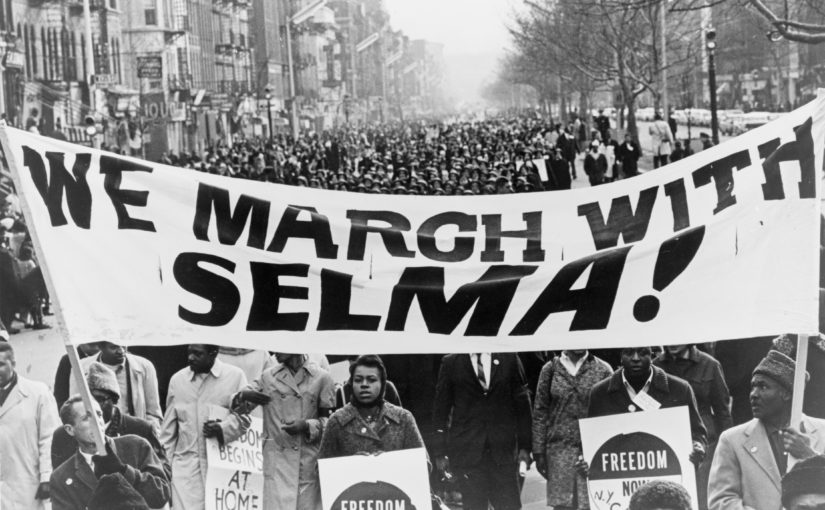PHOTO COURTESY | WIKI COMMONS
Black History Month’s relevance lies in an uncomfortable past of intolerance and racism.
February is Black History Month. This month, as expected, has drawn out the annual Facebook comment vitriol and cries of “What about white history month?” And sure, I may have thought like this too at one point. However, that was when I was very young and my views have changed significantly since then. I believe there is a strong case for Black History Month.
For some, it may be natural to think, “What about me?” or “ Why don’t I get a month?”
To find the answer, we must revisit some very uncomfortable periods in history. For years our country failed to properly acknowledge the contributions that black people made to society. Thus, a large segment of our population was left feeling forgotten and underrepresented at best and downright discriminated against at worst.
As children, we learn about white people and white historical figures every day of the year. We don’t need to fight for recognition. White people have never been put in a situation where we had to collectively fight for the right to be seen as worthy or competent in any respect simply due to being white. Non-white people, and especially African-Americans, have had to fight for this for centuries, and it goes much deeper than just abolishing slavery.
For example, many times throughout history, the fields of biology, anthropology and psychology were infested with proponents of “racial realism” in its numerous forms — more recently referred to as scientific racism — a field with roots in social Darwinism that essentially sought to prove the supposed genetic inferiority of anyone who wasn’t white. This allowed those in power during the early years of our country to justify heinous practices like slavery and segregation to their own benefit. Archaic social hierarchies were kept in place simply by powerful figures claiming that the people they oppressed couldn’t suffer on the same level that they did, which we now realize is awful. In the years since, all of this science has been proven to be turn-of-the-century quackery with no internal or external validity, unsurprisingly.
Many people also seem to be forgetting that as recently as our grandparents’ generation, it was perfectly legal to refuse service to black people, to force them into separate schools and largely relegate them to a separate and functionally invisible sector of society. Our families and community members lived through it. They tell their children about it, and they remember. To pretend this enormous grievance can be forgotten in less than one lifetime is ludicrous. To seriously claim that these damaging practices haven’t left a lasting impact even on today’s young people takes enormous powers of denial and deflection.
Those are some of the factors that led to the creation of Black History Month. Those who wonder why February was chosen to celebrate should know that this decision was not arbitrary. The celebration was first proposed by Carter G. Woodson, a notable African-American historian and educator, in 1926. Woodson chose this month because it is the birth month of Frederick Douglass, an abolitionist and esteemed African-American author, as well as Abraham Lincoln, who signed the Emancipation Proclamation, legally freeing all slaves in the Confederacy and marking an important milestone for human rights in the United States.
Furthermore, I have also seen concerns expressed that we shouldn’t “honor one race and not the others.” Well, we do honor other races and many other marginalized groups with their own months as well. March is Women’s History Month. June is LGBT Pride Month. November is Native American History Month. The list goes on. There is even an Irish American Heritage Month if you are that concerned about white representation.
However, all of these groups have something in common. At some point in history, they were told by the majority of American society that they were less than, incapable or somehow undeserving of representation or equal opportunity, and in many cases still are told these things. It is worth deep examination that while all of these respective heritage months exist, only Black History Month seems to elicit such particular vitriol from the masses.
White Americans as a collective have never had to prove their humanity and have never found themselves lacking representation. We have enough. We don’t need a month. If the idea of simply recognizing the achievements and upward struggle of a historically oppressed people feels divisive or oppressive to you, it may be time for some self reflection.
There is evidence that this representation is needed around us every day, with the troubling resurgence of white nationalism, scientific racism and even self-professed fascism in the likes of figures such as Richard Spencer. We cannot afford to ignore this or be silent in the face of injustice when advocates of racism only continue to yell louder.
I would like to believe as much as anyone that these problems will simply go away if we ignore them, or that we have made enough progress and all people are finally equal. Change has never been that easy, though I’m sure we will all be glad when the day finally comes that people don’t need to push for representation or protest simply to have it recognized that Black Lives Matter. But in order to get there, we have to keep working, educating and organizing like crazy to make sure that racism is too afraid to rear its ugly head ever again. I believe that Black History Month still has a role to play in helping us get there.
